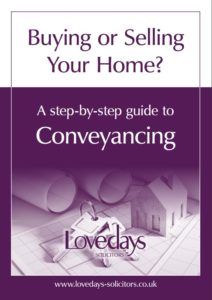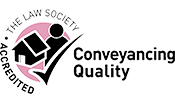- Home
- Personal Services
- Advice for Employees
- Conveyancing
- Dispute Resolution
- Boundary Disputes
- Dealing with Rent Arrears
- Japanese Knotweed Claims
- Landlord and Tenant Disputes
- Landlord Harassment & Illegal Eviction
- Negligence Claims Against Builders & Developers
- New Build Property Disputes
- Noisy Neighbour Disputes
- Personal Debt Collection
- Property Misrepresentations Claims
- Rights of Way Disputes
- Section 21 No Fault Evictions
- TOLOTA Claims
- Tree & Hedge Neighbour Disputes
- Divorce and Separation
- Family Law
- Lasting Power of Attorney
- Licensing
- Probate Law
- Trusts
- Wills
- Business Services
- Reviews
- Make An Enquiry
- Cost and Service Information
- About Us
- Contact Us
Step-Parents' Rights: Advice and Support
When you marry someone who already has children or you enter into a civil partnership with them, then you will become the step-parent of the child. In many cases, this can mean that you take on many of the day to day parenting duties, and you can often treat the child as if they were your own. However, it is important to remember that whilst you may care for the child on a daily basis, you do not have the same rights as the child’s biological parents. It is therefore important for you to understand what your legal rights and responsibilities are as a step-parent irrespective of the bond you have with the child or the extent of the role that you play in their life.
Who is a Step Parent?
A step-parent is someone who is married to the biological parent of a child, whether this is the mother or the father, or someone who is in a Civil Partnership with the parent. In the eyes of the law, if you are only living with the biological parent, then you will have different rights.
Most step-parents will live in the same house as the child and their biological parent, and will often find themselves acting as a parent and sharing parenting duties with the biological parent (in loco-parentis). A step-parent can be any gender, but it does not give them any legal rights to be involved in important decisions over a child’s life, such as their schooling and medical treatment.
As a step-parent, it is important to understand exactly what you rights are, and responsibilities can and cannot fall to you in your role.
Parental Responsibility for Step Parents
Parental responsibility is a term that covers the rights and responsibilities of a parent. This requires a parent to provide a home for their child and protect and maintain them. It also means that they are responsible for disciplining the child and looking after their property as well as deciding on their education and medical treatment.
Anyone with parental responsibility is also responsible for naming the child and agreeing to any change of their name. It is important to remember that parental responsibility covers the responsibilities of the parent and their duties towards the child and not their rights. A mother will automatically gain parental responsibility when they give birth, and a father will have this if they are married to or in a civil partnership with the mother or by being named on the birth certificate of the child.
As a step-parent, you do not automatically acquire parental responsibility of the child, even if you are married to one of their biological parents. Although you may take on the role of the parent in many ways, your legal responsibilities towards the child do not change. However, there are ways that step-parents can acquire parental responsibility if they wish to.
One way is to apply to the court for a Child Arrangements Order that allows the child to live with the step-parent either on their own or with another person, although these are not common. It is also possible to obtain parental responsibility by adopting the child and taking on the same rights as a biological parent. The court can also issue a Parental Responsibility Order as a result of an application by the step-parent or a Parental Responsibility Agreement can be signed by all parties who have parental responsibility.
{quote}
Legal Procedures for Acquiring Parental Responsibility
In order to qualify for a Step-Parent Parental Responsibility Agreement, you must be married to the biological parent that the child lives with and you must have the signed consent of everyone who has parental responsibility for the child. This allows an agreement to be drafted and sent to the court, along with supporting documents such as a marriage certificate and the child’s full birth certificate.
All parties to the agreement must also supply photographic evidence of identity such as a passport or driving licence. A Parental Responsibility Agreement does not remove parental responsibility from a biological parent or give any parent a greater say in the child’s upbringing. It also does not make the step-parent liable to pay child maintenance or give automatic rights to see the child if the relationship ends.
If one parent does not agree to the Parental Responsibility Agreement, but the other parent and the step-parent believe that having parental responsibility will be in the best interests of the child, then it is possible to apply to the court for a Parental Responsibility Order. During this process, the court will listen to the arguments of all people who have parental responsibility for the child to determine whether it will be in their best interests to grant the step-parent parental responsibility as well. To do this, the step-parent will need to be married to the parent of the child, and they will not be able to apply for parental responsibility if they get divorced.
Rights and Limitations of Step Parents
If a step-parent is granted parental responsibility, then it can allow them to have a say in all aspects of the upbringing of the child. This can mean that you are able to give medical consent for treatment and to be informed about the child, such as from the child’s school or doctor. It also allows you to be consulted by other people in relation to some of the most important aspects of bringing up a child, including their schooling, what their surname should be, their religion and their residential location.
It will also allow the step-parent to be a party to any legal or formal processes or court proceedings that may involve the child. This can all be very important in the care of a child, as it can allow a step-parent to make vital decisions in the case of an emergency, such as when needing urgent medical treatment or if consent needs to be given for aspects of their education.
It is important to remember that any Parental Responsibility Orders or Agreements will come to an end once the child reaches the age of 18, if the child is adopted or by further order of the court.
How Lovedays Solicitors Can Help
At Lovedays Solicitors, we can help step-parents to understand exactly what their rights and responsibilities are. Our huge experience in family law means that we can guide you through what options you have available and whether you are able to apply for parental responsibility.
We can explain everything that this entails and take you through the process, helping you to negotiate with other family members and draft legal agreements. If necessary, we can help you apply to the courts for parental responsibilities, helping to prepare you and representing you in court.
We have a friendly and knowledgeable team who can help you every step of the way, dealing with your situation with sensitivity and professionalism throughout. Get in touch with us now to find out more about your personal situation, what your rights are and what routes may be open to you as a step-parent.
Conclusion
A step-parent can play a huge role in the life of a child, but they can find themselves limited in what they are able to do if they do not have proper parental responsibility. As a step-parent, you might want to be able to have all the rights that most parents would expect when you have a child in your car that you are helping to raise, so it is important to understand what you are entitled to.
We can help you to navigate the process of obtaining parental responsibility, whether it is through a Parental Responsibility Agreement, or if you need to apply to the courts for a Parental Responsibility Order. The expert advice available from Lovedays Solicitors can help to make the process as smooth as possible to ensure that the child involved gets the best possible outcome.
{quote}
Frequently Asked Questions
If a parent and step-parent separate, then the step-parent will not have an automatic right to see the child even if they have parental responsibility. They will also not be required to pay child maintenance.{4seo_faq_answer_end}
Yes, you will have an equal say in how the child is brought up if you have parental responsibility, but you will not have a greater say than anyone else.{4seo_faq_answer_end}
The child will remain with those who have parental responsibility, which means you could share responsibility with the other remaining parent.{4seo_faq_answer_end}
Dealing with Joanne at Lovedays Family department was always a positive experience. She made sure I fully understood my legal situation and her communication style, always so clear and concise, helped me navigate my way through a difficult time.
Get Support Today
If you are a step-parent seeking clarity on your legal rights and responsibilities, or if you are considering applying for parental responsibility, Lovedays Solicitors is here to help. Our experienced and compassionate family law team is ready to guide you through every step of the process, providing expert advice and support tailored to your unique situation.
Don't navigate this complex journey alone – reach out to us today to ensure that both you and the child receive the best possible outcome. Contact Lovedays Solicitors now to discuss your needs and find out how we can assist you in securing the legal standing you deserve.

Free Guide
If you don’t know your leasehold from your freehold, then get our Free Conveyancing Guide. It contains details about the steps you will need to take with any property transactions. The Guide giving you detailed guidance on what your lawyer will be doing for you and what to look out for.


Lovedays Solicitors, Brooke-Taylors Solicitors, Potter and Co Solicitors and Andrew Macbeth Cash and Co Solicitors are the trading names of Derbyshire Legal Services Limited which is a company registered in England and Wales under company number 08838592. Registered office Sherwood House, 1 Snitterton Road, Matlock, Derbyshire, DE4 3LZ.
Authorised and Regulated by the Solicitors Regulation Authority under SRA ID number 637916.
-
01629 56660
-
This email address is being protected from spambots. You need JavaScript enabled to view it. -
Sherwood House
1 Snitterton Road
Matlock
Derbyshire
DE4 3LZ
© Copyright 2019 Derbyshire Legal Services Limited | Website by WebWorks